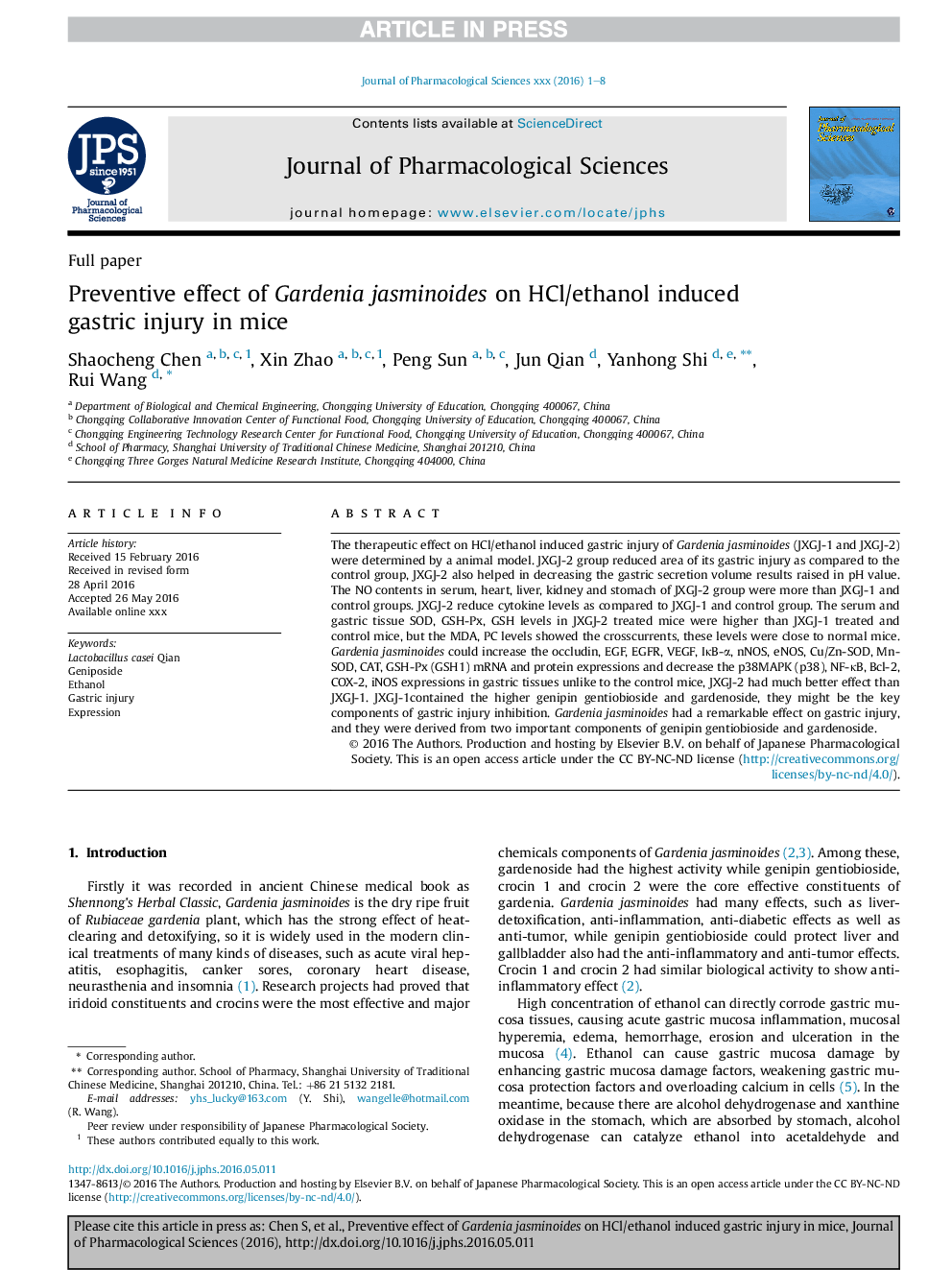| Article ID | Journal | Published Year | Pages | File Type |
|---|---|---|---|---|
| 8533471 | Journal of Pharmacological Sciences | 2017 | 8 Pages |
Abstract
The therapeutic effect on HCl/ethanol induced gastric injury of Gardenia jasminoides (JXGJ-1 and JXGJ-2) were determined by a animal model. JXGJ-2 group reduced area of its gastric injury as compared to the control group, JXGJ-2 also helped in decreasing the gastric secretion volume results raised in pH value. The NO contents in serum, heart, liver, kidney and stomach of JXGJ-2 group were more than JXGJ-1 and control groups. JXGJ-2 reduce cytokine levels as compared to JXGJ-1 and control group. The serum and gastric tissue SOD, GSH-Px, GSH levels in JXGJ-2 treated mice were higher than JXGJ-1 treated and control mice, but the MDA, PC levels showed the crosscurrents, these levels were close to normal mice. Gardenia jasminoides could increase the occludin, EGF, EGFR, VEGF, IκB-α, nNOS, eNOS, Cu/Zn-SOD, Mn-SOD, CAT, GSH-Px (GSH1) mRNA and protein expressions and decrease the p38MAPK (p38), NF-κB, Bcl-2, COX-2, iNOS expressions in gastric tissues unlike to the control mice, JXGJ-2 had much better effect than JXGJ-1. JXGJ-1contained the higher genipin gentiobioside and gardenoside, they might be the key components of gastric injury inhibition. Gardenia jasminoides had a remarkable effect on gastric injury, and they were derived from two important components of genipin gentiobioside and gardenoside.
Related Topics
Health Sciences
Pharmacology, Toxicology and Pharmaceutical Science
Pharmacology
Authors
Shaocheng Chen, Xin Zhao, Peng Sun, Jun Qian, Yanhong Shi, Rui Wang,
